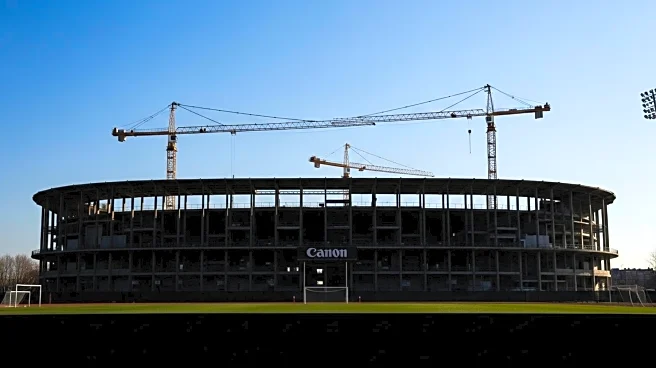What's Happening?
FIFA President Gianni Infantino has pledged to support the reconstruction of football infrastructure in Gaza following a peace summit in Egypt. The commitment is part of a broader post-war reconstruction effort aimed at restoring sports facilities destroyed during military operations. Infantino emphasized the importance of FIFA's involvement in the peace process, stating that the organization will assist in rebuilding football facilities and launching youth programs in Gaza and other Palestinian territories. The initiative includes the creation of new pitches and 'FIFA Arenas' to provide hope and unity through sport.
Why It's Important?
The reconstruction of football infrastructure in Gaza is significant as it aims to restore normalcy and provide opportunities for youth in a region affected by conflict. By investing in sports facilities, FIFA is contributing to the social and cultural rebuilding of Gaza, offering a platform for community engagement and development. This initiative could foster peace and unity, providing a positive outlet for young people and potentially reducing tensions. The involvement of FIFA highlights the role of international organizations in supporting post-conflict recovery and promoting stability through sports.
What's Next?
FIFA plans to collaborate with the Palestinian Football Association and other partners to implement the reconstruction projects. The focus will be on creating mini-pitches and 'FIFA Arenas' to facilitate youth engagement in football. The initiative invites other stakeholders to join the effort, potentially leading to broader international support for Gaza's recovery. The success of these projects could encourage similar efforts in other conflict-affected regions, demonstrating the power of sports in peacebuilding and community development.
Beyond the Headlines
The commitment by FIFA to rebuild Gaza's football infrastructure underscores the potential of sports as a tool for diplomacy and peacebuilding. It highlights the ethical responsibility of international organizations to contribute to humanitarian efforts in conflict zones. The initiative may also influence cultural perceptions, promoting football as a unifying force that transcends political and social divides. Long-term, this could lead to increased investment in sports as a means of fostering global peace and cooperation.










